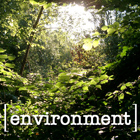
|
CURITIBA: THE CITY THAT RUNS ITSELF Curitiba, Brazil, is a city with an inner life all its own. The city has learned to prosper within the limits of self-sufficiency, and stands as a model to many. A group of young architects convinced the mayor that the rapidly growing city needed a new, more people-centered urban plan; he held a contest. The best ideas were opened to public debate, the people's comments were added to the plans and handed over to the young architects, who were to design a visionary development plan for Curitiba. Flooding was resolved by diverting water to lakes in the city's parks. Shopping districts were turned into pedestrian plazas. Street vendors were united in an innovative roving outdoor market, serving the whole city as it moved from place to place. Transportation was revolutionized by creating a unique "spider-web" (part radial, part circular) bus transit system, eliminating the need for costly new subway lines. According to Global Ideas Bank, "Curitiba recycles two-thirds of it garbage", separating it neatly into "organic" and "inorganic". The city hosts an Ecological Marathon, in order to honor the environment and highlight Curitiba's sustainable development policies. City policy prioritizes the preservation and promotion of green areas, or parkland, as a means of expanding "social capital", essentially civic pride, quality of life, and basic human dignity. The city provides incentives for developers to include green spaces in their projects. The United Nations Development Program recognizes Curitiba for responsible urban development, citing a focus on preventing the ill-effect of urban sprawl, even in the midst of massive demographic growth. And the city has turned to renewable energy sources, in order to further promote its self-sufficient, clean and green policies. |
|||||||
|
||||||||







